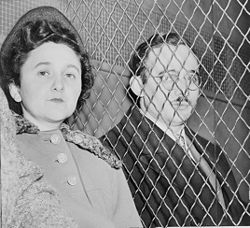Cross posted from The Stars Hollow Gazette
Can the government force you to eat broccoli or buy a cell phone? Those were some of the questions asked during the first two of three days of hearings before the US Supreme Court over whether it is constitutional for the government to mandate an individual to buy health care insurance from a private company or face a “penalty” to be collected by the Internal Revenue Serve. Candidate Barack Obama opposed a mandate but changed his mind, including it his “signature” [Affordable Care Act , taking single payer and then the option for a public sponsored insurance off the table. At this point, the majority of the public is opposed to the mandate and about a third want the entire bill scrapped, even though it has a few good provisions such removing pre-existing conditions as a reason to deny coverage and the implementation of lifetime caps on what the insurance company will pay.
Dahlia Lithwick, a senior editor and legal correspondent for Slate, gives her analysis of the first two days:
One thing was clear after the two hour session (pdf) at the Supreme Court on the constitutionality of the Affordable Care Act: The outcome of President Obama’s signature legislative achievement probably rests on the shoulders of two men-Chief Justice John Roberts and Justice Anthony Kennedy. Or, to put it differently, everyone else seems to have staked a clear position. [..]
In the beginning, all eyes were on Kennedy who opened his questioning by asking Solicitor General Donald Verrilli to “assume this law is unprecedented.” (Gulp. That isn’t the way Verrilli wanted this to begin.) Both Kennedy and Roberts pressed Verrilli to enunciate a limiting principle on the congressional power asserted here. Or as Kennedy put it, early in the argument: “Can you identify any limits on the commerce clause?” [..]
Kennedy had serious doubts and Verrilli appeared unable to allay them. The odds on a 5-4 vote to strike down the law looked good. Kennedy asked far fewer questions of the challengers, although near the end of the morning he said, in his inimitably oblique style that young people are “uniquely, proximately very close to affecting the rates of insurance and the cost of providing medical care in a way that is not true in other industries.” That may suggest he believes that the health insurance market really is unique in some ways. [..]
My sense is that we saw only a part of what the justices were really thinking today. We heard Roberts and Kennedy expressing doubts about each side of the argument. But we didn’t get to hear them think aloud about what it actually means to strike down a monumental act of congress. We can assume that is weighing on some of the justices, nonetheless. The other thing we didn’t hear much about today was case law. Justice Stephen Breyer pointed out more than once that the justices weren’t there to debate whether or not they liked the bill. But it may be worth counting up the references to forced gym memberships, cellphone purchases, and broccoli mandates, and tallying them up against references to actual court cases. That’s either because the mandate is so unprecedented that precedent doesn’t matter. Or, because precedent just doesn’t matter.
What we do know is that an individual can survive very well without broccoli or a cell phone but at some point that individual will need health care. In another article by Ms. Lithwick she points out that the conservative argument that this is about freedom has a very dark side:
It’s always a bit strange to hear people with government-funded single-payer health plans describe the need for other Americans to be free from health insurance. But after the aggressive battery of questions from the court’s conservatives this morning, it’s clear that we can only be truly free when the young are released from the obligation to subsidize the old and the ailing. [..]
Freedom also seems to mean freedom from the obligation to treat those who show up at hospitals without health insurance, even if it means letting them bleed out on the curb. When Solicitor General Donald Verrilli tries to explain to Justice Scalia that the health care market is unique because “getting health care service … [is] a result of the social norms to which we’ve obligated ourselves so that people get health care.” Scalia’s response is a curt: “Well, don’t obligate yourself to that.” [..]
Freedom is the freedom not to rescue. Justice Kennedy explains “the reason [the individual mandate] is concerning is because it requires the individual to do an affirmative act. In the law of torts, our tradition, our law has been that you don’t have the duty to rescue someone if that person is in danger. [..]
Freedom is to be free from the telephone. [..]
Freedom is the freedom not to join a gym, not to be forced to eat broccoli. It’s the freedom not to be compelled to buy wheat or milk. And it’s the freedom to purchase your health insurance only at the “point of consumption”-i.e., when you’re being medivaced to the ICU (assuming you have the cash). [..]
Some of the members of the court find this notion of freedom troubling. Justice Ruth Bader Ginsburg notes that: “Congress, in the ’30s, saw a real problem of people needing to have old age and survivor’s insurance. And, yes, they did it through a tax, but they said everybody has got to be in it because if we don’t have the healthy in it, there’s not going to be the money to pay for the ones who become old or disabled or widowed. [..]
Sotomayor, again pondering whether hospitals could simply turn away the uninsured, finally asks: “What percentage of the American people who took their son or daughter to an emergency room and that child was turned away because the parent didn’t have insurance-do you think there’s a large percentage of the American population who would stand for the death of that child if they had an allergic reaction and a simple shot would have saved the child?” {..]
This case isn’t so much about freedom from government-mandated broccoli or gyms. It’s about freedom from our obligations to one another, freedom from the modern world in which we live. It’s about the freedom to ignore the injured, walk away from those in peril, to never pick up the phone or eat food that’s been inspected. It’s about the freedom to be left alone. And now we know the court is worried about freedom: the freedom to live like it’s 1804.
My biggest problem is that forcing people to buy insurance from a private company that does not insure access to care and cost controls or without an inexpensive public option, like buying into Medicare, is just a financial gift to the insurance companies. Without a public option, this bill is a major failure and unlikely to be fixed in the future, as so many Obama supporters claimed, or be replaced if SCOTUS declares the bill unconstitutional.

 On this day in 1951,
On this day in 1951, 
